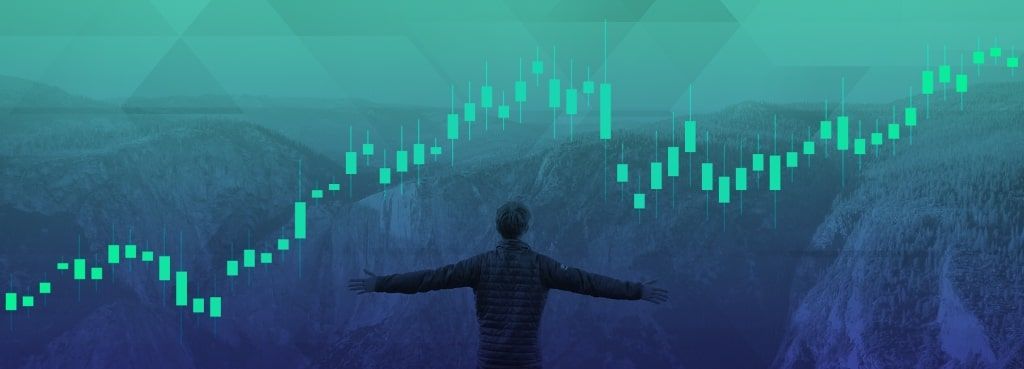Is DeFi the Future of Financial Freedom for the Masses?

Traditional monetary systems have made significant strides in providing access to financial products to more people. Not long ago, many financial products were only accessible to the wealthy and connected. Thanks to the internet and the rise of non-traditional banks and lenders, more people can access financial products than ever before.
But vast populations across the world are underbanked or unable to access important financial products. Even in the United States, the wealthiest country in the world, borrowers struggle to access financial tools due to the restrictions and high costs levied by intermediaries like traditional banks.
Thankfully, decentralized finance (DeFi) presents a unique opportunity to provide financial freedom to more people, even those who can’t currently access financial products. Here’s why DeFi could be the future of economic independence for the world’s population.
What Financial Freedom Looks Like
People define financial freedom in many ways. For some, it means having enough wealth or savings to not have to work unless they want to. For others, it means being financially independent, being completely debt-free, or simply having enough income to buy the things they want—not just the things they need.
At the most basic level, financial freedom means having access to financial products that can help you accomplish your goals. People who have access to banks, investment opportunities, and financial tools like loans have more options to make their money work for them. They also have more opportunities to start businesses, make essential purchases, and earn interest to grow their wealth.
Regardless of how you interpret financial freedom, it remains an elusive concept for a significant portion of the people living in the world today. Too many don’t have access to useful and affordable financial products and services—many don’t even have access to something as basic as a bank account.
According to the World Bank, about 69% of the world’s adults have a bank account.¹ That means almost one-third of the population either don’t have the means to obtain a bank account, or they don’t have access to a bank that can provide them with one. This makes their lives exceedingly complicated, as they can’t conduct simple financial transactions.
Furthermore, even populations who have access to a bank account don’t always have access to the financial products they need to thrive, such as loans, lines of credit, and investment opportunities.
Traditional institutions typically place strict requirements on their financial products, requiring borrowers and others to have a high credit score, have a high income, pay substantial fees, or meet other types of monetary thresholds before they can even be considered.
DeFi removes these barriers, enabling anyone with an internet connection to access the financial products they need without meeting the arbitrary requirements of an intermediary.
DeFi Makes Financial Services More Accessible and Democratized
It is challenging for traditional banks to reach more people because it is risky for them to provide financial infrastructure to everyone, regardless of where they are. Doing so is expensive, and banks typically need strong guarantees that they’ll receive a return on their investment. This makes some markets less attractive than others, which results in large underbanked populations.
Blockchain technology enables people to safely make and receive payments without the oversight of a bank or another institution. Transactions are instead verified by a decentralized consensus of millions of nodes, each of which represents another individual system in the network. The digital ledger is distributed, not centralized, protecting it from corruption without requiring a single entity to oversee it.
DeFi projects within blockchain networks can then offer almost any type of financial service that could otherwise be obtained from a traditional bank—but without the barriers to entry. Instead of petitioning a financial organization for a product, individuals can turn to a global network and obtain one on their own.
This creates immense opportunities for people who can’t access financial products from a traditional bank. It also means anyone with an internet connection and digital wallet can obtain funds or invest in loan funds to earn interest.
DeFi makes microloans and micro-investments more feasible, as there is little to no monetary investment required to provide the loan. Instead of a single entity taking on the risk, the risk is distributed amongst individual investors willing to finance the loan.
For example, if an underbanked family in a developing country needs a loan, they can turn to a decentralized lending pool to obtain funding from investors around the world. Using a smart contract, the borrower simply pledges a deposit of crypto tokens as collateral to obtain the funding, and they pay back the loan with interest based on the contract’s parameters.
Harness the Power of DeFi Technology
DeFi leverages blockchain technology and moves it beyond cryptocurrency investing to democratize financial products for the masses. The DeFi revolution is already underway. It’s even gaining attention from traditional financial organizations, and regulatory bodies are already drafting regulations that will open the sector and make it more widely available.
But you don’t have to wait to take advantage of DeFi. EQIFi is positioned to become an industry world leader in decentralized finance, providing a decentralized protocol for pooled lending, borrowing, and investing—accessible alternatives to traditional financial products difficult for many to acquire.
EQIFi Team